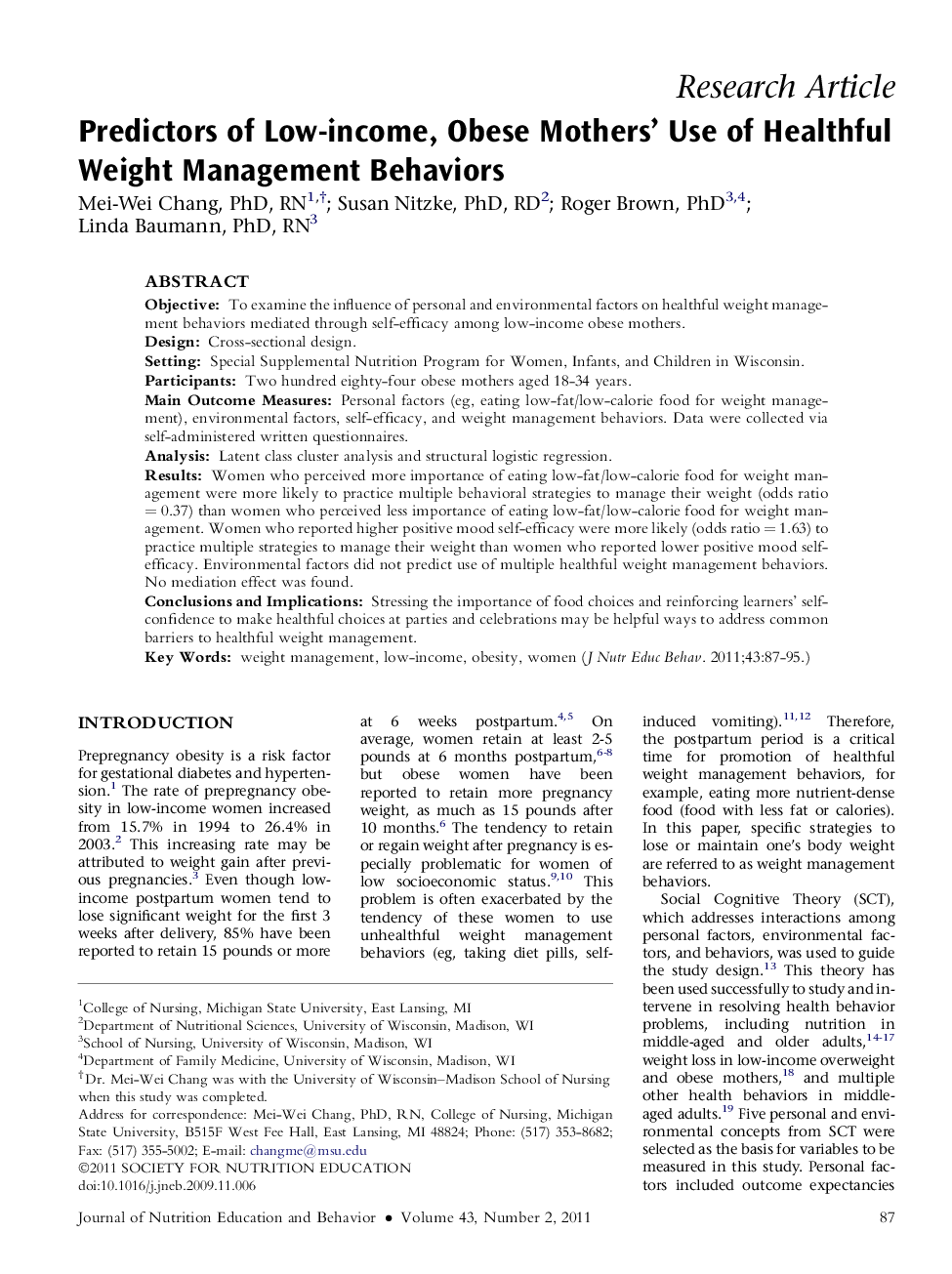| کد مقاله | کد نشریه | سال انتشار | مقاله انگلیسی | نسخه تمام متن |
|---|---|---|---|---|
| 361742 | 620609 | 2011 | 9 صفحه PDF | دانلود رایگان |

ObjectiveTo examine the influence of personal and environmental factors on healthful weight management behaviors mediated through self-efficacy among low-income obese mothers.DesignCross-sectional design.SettingSpecial Supplemental Nutrition Program for Women, Infants, and Children in Wisconsin.ParticipantsTwo hundred eighty-four obese mothers aged 18-34 years.Main Outcome MeasuresPersonal factors (eg, eating low-fat/low-calorie food for weight management), environmental factors, self-efficacy, and weight management behaviors. Data were collected via self-administered written questionnaires.AnalysisLatent class cluster analysis and structural logistic regression.ResultsWomen who perceived more importance of eating low-fat/low-calorie food for weight management were more likely to practice multiple behavioral strategies to manage their weight (odds ratio = 0.37) than women who perceived less importance of eating low-fat/low-calorie food for weight management. Women who reported higher positive mood self-efficacy were more likely (odds ratio = 1.63) to practice multiple strategies to manage their weight than women who reported lower positive mood self-efficacy. Environmental factors did not predict use of multiple healthful weight management behaviors. No mediation effect was found.Conclusions and ImplicationsStressing the importance of food choices and reinforcing learners' self-confidence to make healthful choices at parties and celebrations may be helpful ways to address common barriers to healthful weight management.
Journal: Journal of Nutrition Education and Behavior - Volume 43, Issue 2, March–April 2011, Pages 87–95